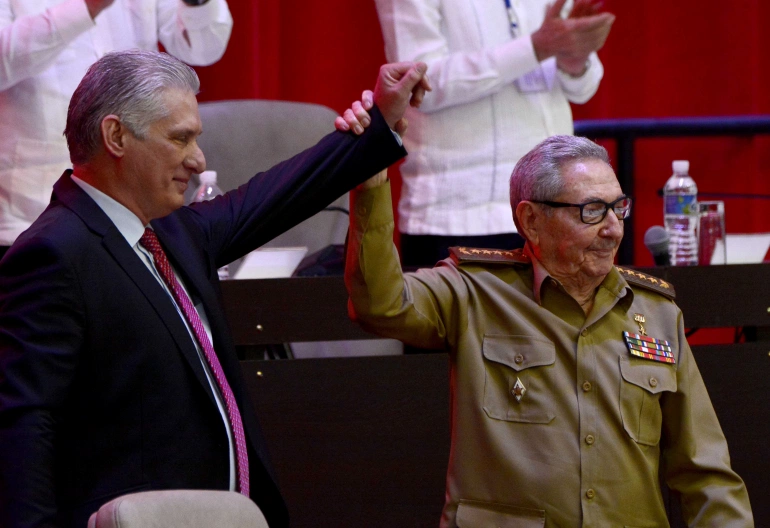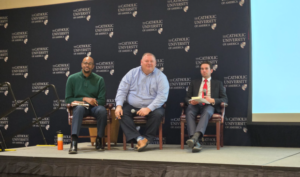Raul Castro Steps Down as Head of Communist Party in Cuba

Image Courtesy of Al Jazeera
By Chris Carey
Since the communist revolution in Cuba in 1959, Cuba’s leading party has not looked to anyone other than a Castro as its leader. However, on Monday, April 19, Raúl Castro, Fidel’s younger brother and the most recent leader of the party, announced that he would step down from his responsibilities as leader of the Communist Party and pass on the torch of communist leadership in the island country.
The 89-year-old revolutionary, former head of state and former leader of the Communist Party of Cuba, stepped down as Cuba’s President in 2018, also announcing his plans to step down as leader of the party three years later in 2021. At that time, he chose Miguel Diaz-Canel as his Presidential successor.
Now, Diaz-Canel has also taken his spot as the head of the party, indicating a possible change in direction for the nation, although he certainly supports the continued hegemony of the one-party communist system in the country.
When he took office in 2018, Diaz-Canel permitted internet access on mobile phones, and later on home computers, which some saw as a great step for the party becoming more in touch with the people, and others saw as fuel on the fire of the protests across the country that have only grown in recent years.
As the New York Times reports, those who are able to remember the poor conditions under the dictatorship of Fulgencio Batista are a fast-aging population with different motivations and political preferences than the growing youthful populations of Cuba who see the goods that have come with the government’s rule, but want to see increased individualism, free thought, economic independence, and more.
“There is a very sharp generational divide … and that’s one of the Cuban government’s principal challenges going forward, because their historic base of support is gradually retiring and dying off,” American University professor William LeoGrande said.
This shift generationally can be attributed in part to the expanded economic prowess of Cuba under the Obama administration, which was swiftly stunted by the Trump administration’s reenactment of the full trade embargo.
It can also be attributed to growing support for protest movements, such as the San Isidro movement. Activist Claudia Glenlui, who is a part of that movement, expressed some of the indignitations that many youth feel in regards to the party and the government.
“The party does not represent my generation, it does not represent me,” Genlui said. “There is a lack of generational connection, of interests, of priorities, and all of that somehow drives us away.”
In all, Castro moving on from the head of the party is a monumental change in the governing structure of Cuba, and may lead to more foreign policy changes, as well as internal structural shifts with a move to a younger government. Two older members of the party’s leadership stepped down along with the younger Castro brother. The United States will be watching closely with the political shakeup; however, the New York Times also reports that the Biden administration does not see the opening of more diplomatic or economic relations with Cuba as a priority.








